WilliamB is one of the most faithful commenters here and thus, was one of the top-most-requested readers for this feature.
But WilliamB is also one of the most private internet people I know.

So, I sent an email request along with full permission to be as private as desired, and yay! I got an email last week with the interview answers.
No pictures came in the email (not everyone in the world is as obsessed with taking pictures as me, apparently), so I’m just going to sprinkle some of my own throughout in order to break up the text.
Here’s WilliamB:
1. Tell us a little about yourself
I shall take the bull by the horns and say upfront that I keep most of my personal information to myself. There’s a lot I just don’t want out in the Interwebs.
This is very much like how I interact with good friends – we spend so much time talking about things outside us (our friends, recipes, economics, history, books, politics, etc.) that we rarely talk about ourselves or our jobs.
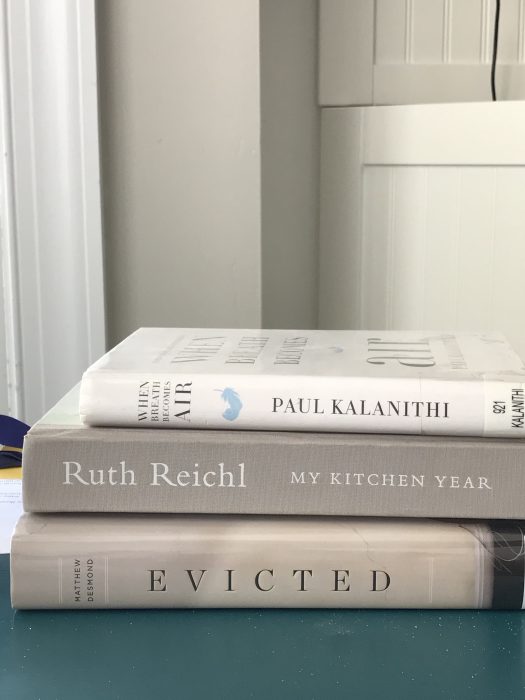
I’m a city dweller, have a white-collar office job, own my home, have a dog and a car, and a family I’m close to.
I was a bit burned out on cooking before the pandemic and it’s only gotten worse since. There are days when slicing a melon seems like too much work for dinner.

2. How long have you been reading The Frugal Girl?
I don’t remember, maybe 12 years? There are archives available so I’ve read every post.
3. How did you get interested in saving money?
A good question for which I don’t have a good answer. It’s not necessity, exactly.
I was brought up in a comfortable middle-class environment and my parents never talked about finances, neither during the lean years nor the fat ones.
But while there have always been things I spent money on, I didn’t throw it away.
I made a relative fortune – $40 – at a casino during a family trip when I was 12: every time an adult gave me $10 or so (I was guiding my blind grandfather, who liked playing the slots sometimes) I stuck it straight into my pocket.
Even when I was broke, I wasn’t poor. I may not have had available cash but I always had an education, the training to be a good employee, and a family to fall back on (whether I wanted them or not sometimes ;-> ).
4. What’s the “why” behind your money-saving efforts?
Another good question for which I don’t have a good answer.
Part of it is an exercise in discipline. Another part is that I’m just not a flashy person; I’m the sort who would be the millionaire next door rather than the financial hollow drum. I like knowing that I have money set aside for needs and wants.
For example, this year my house has needed a lot of work, including a new roof, and because of good luck and good planning, I can get some of my wants done also.
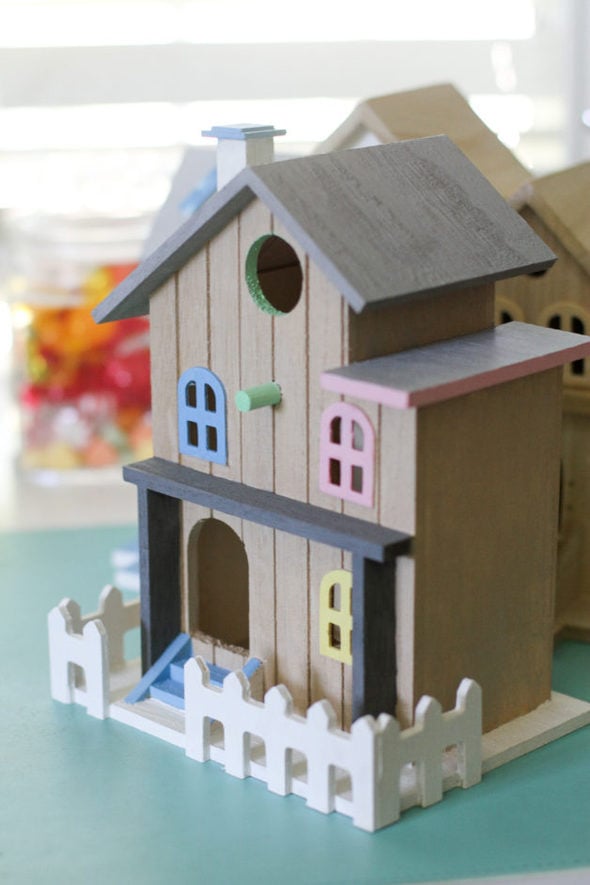
The only picture I had of a roof!
One doesn’t always have good luck and good planning can help when the luck runs out.
For example, the roof needed replacing just a year after the chimney needed a lot of work, and I was finally able to find someone to install venting bathroom fans.
That I found someone after years of searching is great, that it was in the same year that I replaced the roof isn’t so great.
5. What’s your best frugal win?
Does being born to parents who value education and who know how to deal with the working world count? Because that gave me a huge boost in the life sweepstakes.
Aside from that, I’m most proud of a time when I found an outcome that made all three parties better off.
Both I and my co-worker/friend traveled to the same city for work, for separate conferences, and booked into separate hotels. My friend’s hotel was overbooked and there was no room at the inn.

Usually, the hotel pays for the guest to stay in a different hotel.
But my friend’s hotel was trying to weasel out of that, instead suggesting increasingly impossible solutions culminating in one that was actually fraudulent.

So I stepped in.
I told the hotel that this was going to be the deal: my friend would take care of finding a place to stay (with me, we’d been planning to make a night of it anyway), the hotel would not bill our employer for that night’s stay, and the hotel would give my friend a night’s stay at any of the chain’s hotels in the US.
It was a win-win-win.
The hotel didn’t have to pay a rival chain for my friend’s room. Our employer didn’t have to pay for that night’s hotel room.
And my friend didn’t have to pay for the hotel when we took another trip later that year.
6. What’s a dumb money mistake you’ve made?
I can think of two suits I never wore. I got suckered into them and, in the end, donated them with tags still attached.
7. What’s one thing you splurge on?
I feel like I have a lot of them but my top two are food and travel.
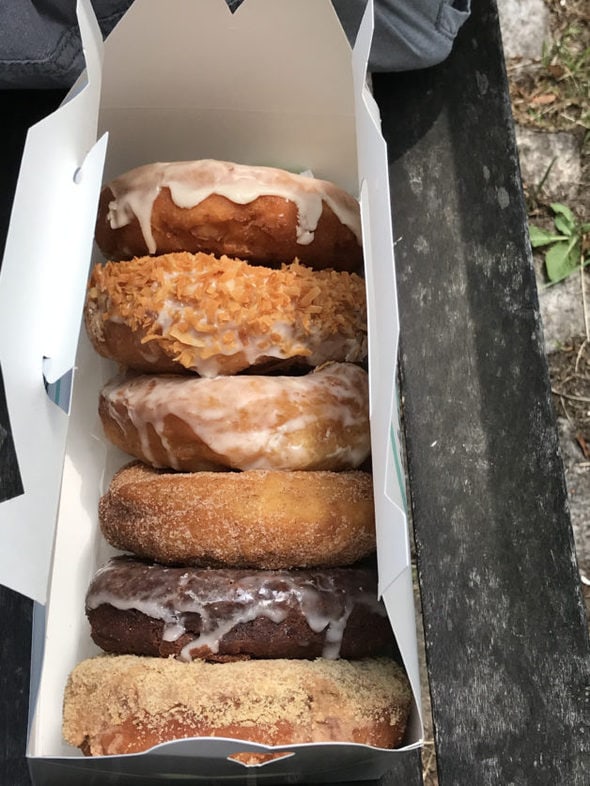
There’s been plenty of opportunities to splurge on food during the pandemic and I mourn the loss of travel.
I haven’t been to a new state or out of the country in over 2 years and it’s looking like it’ll be another 8 months before I get the opportunity.
8. What’s one thing you aren’t remotely tempted to splurge on?
Fancy personal care.
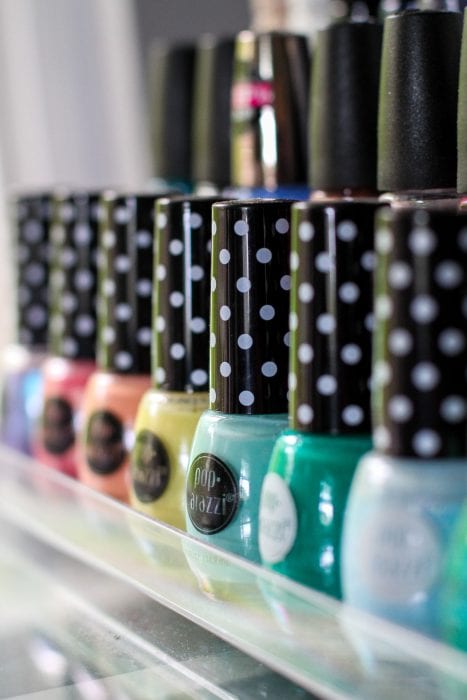
Extravagant haircuts, manicures; whatever it is that people get, I probably don’t get it. Even my father gets more manicures than I do.
9. If $1000 was dropped into your lap today, what would you do with it?
Give some, save some. If you want me to spend a financial gift, you’d better give me a gift certificate.
10. Share a frugal tip with other Frugal Girl readers
FG has shared so many with us that it’s hard to think of one she hasn’t already covered.
Ah, OK, got it: negotiate. There are two basic steps to negotiation: the first is enlarging the pie, the second is getting a larger piece of it. I’m much better at the first than the second. My hotel experience above, is a great example of enlarging the pie.
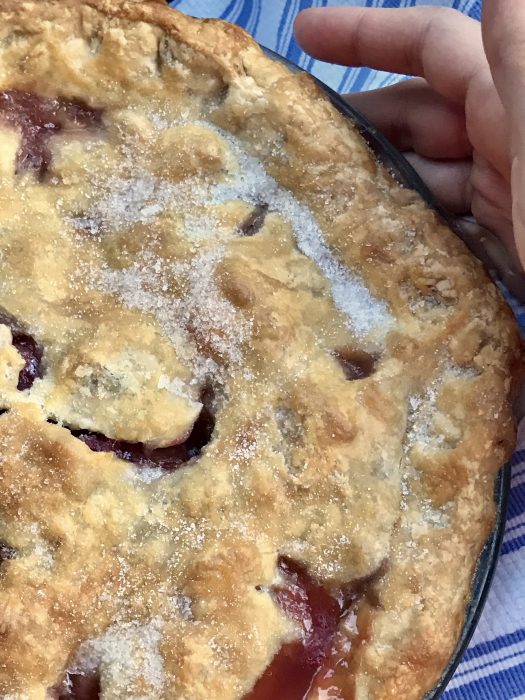
Enlarging the pie usually involves either reallocating resources so they end up with those who value them the most (such as swapping baseball cards) or asking for something that is more valuable to you than to them (such as getting a comp’ed dessert when there’s been a problem with your meal – the dessert is more valuable to you than the cost is to the restaurant).
Ask if they can cut you a deal, or if there’s a discount (AAA? student? Rotary Club?) you could take advantage of.
Look for something you want that is cheaper for them to give you; for example, if the plasterers mess up doing your wall, ask them to paint the rest of the room as well. It may only cost them $100 in extra labor but you’d have to pay someone else $200 to do it.
_________________

CINDY BRICK
Thursday 9th of March 2023
WilliamB, it has been a pleasure getting to know you better...
And Kristen, I went right over to the library to put holds on two of the books in that pile.
Profesora H-B
Tuesday 24th of August 2021
This is a delight! I love seeing William B in the comments here and it's a delight to learn more about this intensely private person.
WilliamB
Tuesday 24th of August 2021
Thanks, everyone, for your warm welcome and kind comments. Thank you, too, Kristen, for the photos. I love the roof pix!
Responses to two of my comments have been strongest: negotiation and professional attitude.
First, negotiation. I learned through a variety of means. My father is a past master at it, superb at both enlarging the pie and getting a larger slice of it. I once saw him beat a Syrian rug merchant at his own game, in his own shop in Damascus, and I'm still not quite sure how he did it. After negotiating a price for some rugs, my mother added one more to the pile. By the time my father was done negotiating for the newly enlarged pile, he'd gotten the additional rug for free.
I also had the opportunity to take a negotiating class in school. It taught me a lot about enlarging the pie, how to recognize when someone's approaching his "no more" spot, the advantage of being able to walk away (look up "BATNA"), the importance of understanding the other party's interests and preferences. Northwestern and Harvard, among others, have schools for it: https://sps.northwestern.edu/professional-development/negotiation/ and https://www.pon.harvard.edu/. I also recommend the book "Getting to Yes: Negotiating Agreement Without Giving In," by Roger Fisher and William Ury.
The other strong response was about learning about professionalism. Even with my background I had some problems - I think most everyone does. The biggest problem I see is entitlement: the sense that someone should get the good things and not have to do the unpleasant ones. It doesn't have to be personal or even accurate, the perception matters. I had trouble getting a job in Asian business because of the perception among Asian companies that Americans thought there was work that was beneath them. The usual example was that Americans wouldn't help clean the office. Heidi Louise's example of picking up a broom is a fantastic one.
Another big, common problem is thinking you know more than you do, and therefore being closed to input. Look up the Dunning-Kruger Effect if you're not already familiar with it. Related to both this and entitlement is not being able to put up with the unpleasant stuff at work (menial work, dull work, etc.) and not being willing to believe something is necessary even if you don't understand it, or no one has the time or interest to tell you why, or even if it's actually not necessary but that's how the company does things. I've worked a lot with gifted kids and one of the their biggest hazards is not being willing to do what they're told, whether or not they wanted to, whether or not it made sense, even if it seemed stupid.
In the professional world, one thing to be aware of is that often you're hired for your hard skills (such as programming) but promoted for your soft skills (such as leadership, or ability to network, or communication skills). It helps to do extra work but sometimes you have to be careful what work - you don't want perception to lower your standing. Don't frequently volunteer to do work stereotypically associated with your characteristics and that lowers one's status. For example, female professional employees shouldn't always volunteer to bring the coffee to meetings.
A more subtle thing to be aware of is that if you're of uncertain or middle status (work standing, knowledge set, etc), doing or saying something that minimizes you will decrease your status. However, if you're clearly of known high standing, then the minimization often has the opposite effect. For example, if a mid-level employee cleans the break room, that lowers the perception of him; if the boss does it, that shows that she's willing to get in the trenches with the rest of us.
Well, this is a lot longer than my original post. Thanks for listening, all, I hope this helps.
Jenny
Tuesday 24th of August 2021
@WilliamB, both/all of your posts here, and on the regular Frugal Girl blog are interesting and helpful! I have a question: what other blogs do you read, both frugality-related, and other stuff?
Nancy Sadewater
Monday 23rd of August 2021
Thank you for the interview, WilliamB. I enjoyed reading it.
Vicky M
Monday 23rd of August 2021
Thank you WilliamB!
It is really nice to know a little more about you. I admit I always enjoy the thoughtful comments you post.
Vicky M